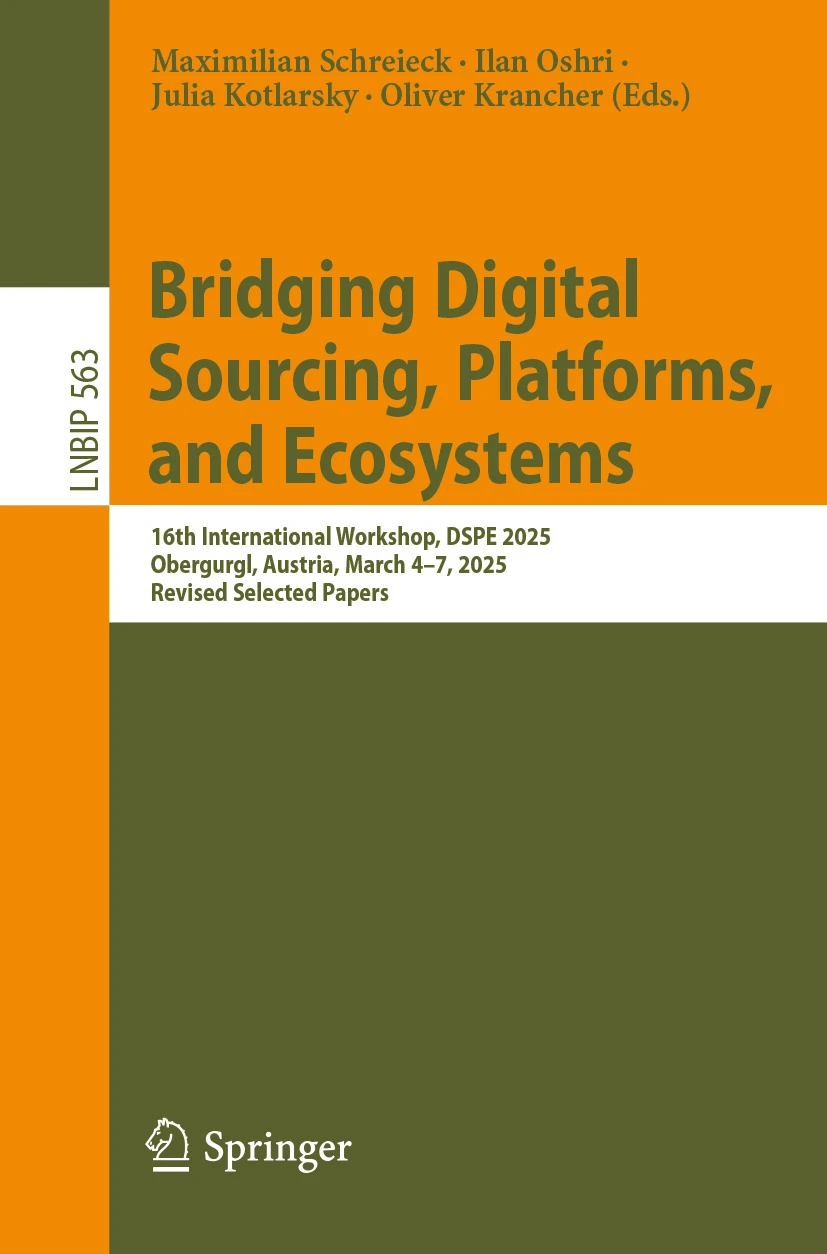Veröffentlichungen von David Rochholz
Konferenz-Artikel (Peer Reviewed)
Rochholz, D. (2024)
Creating Successful Third-Party Developer Ecosystems Around B2B Digital Platforms
Proceedings of the 32th European Conference on Information Systems (ECIS), TREO-Forum, Paphos, Cyprus
View AbstractPlatform owners engage third-party developers in their ecosystems by using boundary resources to grant them access to some of the platforms' core functionalities. Although boundary resources are a niche in Information Systems research, many publications from renowned journals and conferences concentrate on mobile platform ecosystems, adopt a generalist viewpoint, or choose other business-to-consumer (B2C) cases. The business-to-business (B2B) context is underrepresented in this focus. B2C ecosystems typically attract third-party developers more easily because they have a larger customer base than B2B ecosystems. To address this gap, the author suggests conducting research on the creation of successful third-party developer ecosystems around B2B platforms.
Buchkapitel
Beimborn, D. and Rochholz, D. (2025)
(2025)
The Effect of Generative AI on Creating Software Complements for Digital Platforms
Bridging Digital Sourcing, Platforms, and Ecosystems : 16th International Workshop, DSPE 2025, Cham: Springer, S. 34–55
View AbstractThis study investigates the impact of Generative AI (GenAI) on the creation of software complements in digital platform ecosystems. Based on semi-structured interviews with software developers from both platform owner and complementor perspectives, we examine how GenAI is applied to platform boundary resources, to either support complement creation or boundary resource improvements. Using the inductive “Gioia approach”, we develop a data structure showing that GenAI improves platform access and expands platform owner and complementor capabilities. The findings offer four implications: GenAI can accelerate complement creation across platforms; it acts as a new type of boundary resource, merging technical and knowledge resources into conversational and code generating capabilities; it shifts developer focus from coding to the value of the complement; and it highlights the growing importance of managing and governing complement creation.
 (2025)
(2025) (2025)
(2025)